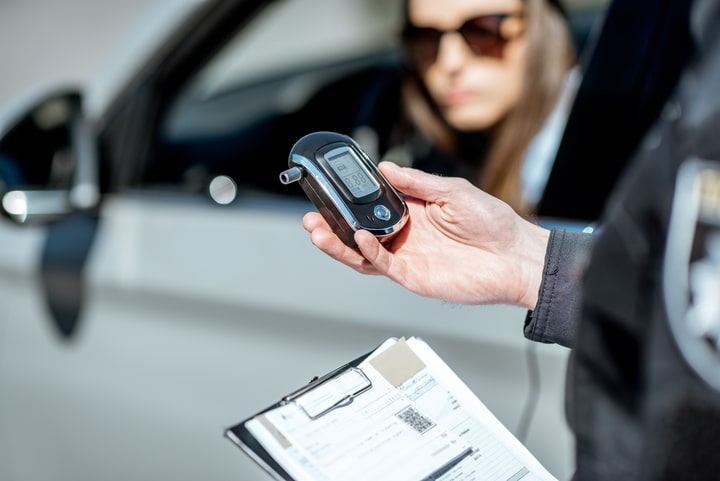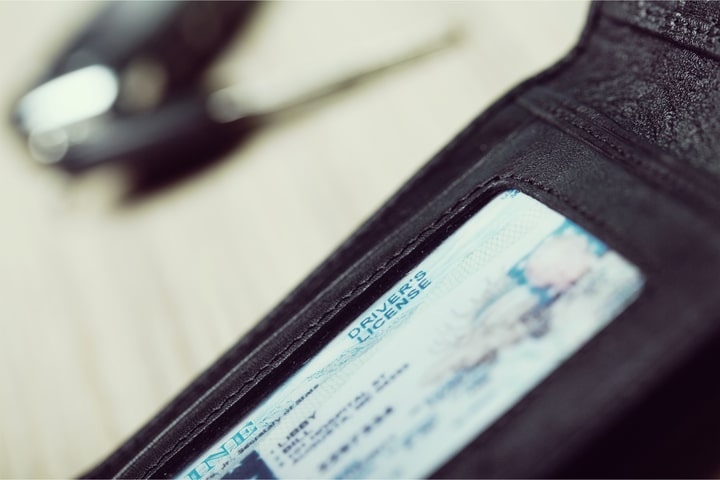
If you’ve ever driven past a police officer in the middle of an Ohio OVI stop, you may have seen the officer holding up a small device for the driver to blow into. This is a breath-alcohol testing device, more commonly known as a breathalyzer.
Police officers use breathalyzers to estimate a driver’s blood-alcohol content (BAC).
If the result of a breathalyzer test indicates a driver is under the influence of alcohol, it may provide the officer with probable cause to arrest the driver.
How Does a Breathalyzer Machine Work?
Under Ohio law, it is illegal to drive with a certain amount of alcohol in your system. The legal standard for what constitutes “drunk driving” is a blood-alcohol content of .08% or more.
However, breathalyzer machines don’t actually test a person’s blood. Instead, these devices measure the amount of alcohol on a person’s breath. The device then uses a complex formula to provide an estimate of the driver’s blood-alcohol content.
There are two types of breathalyzer devices. The breathalyzers police officers use during a traffic stop are called preliminary, or portable breath tests (PBTs). Most police districts also have a larger, more sophisticated breathalyzer at the station.
While PBTs are much more convenient, they are also less accurate. Thus, the results of a PBT are generally inadmissible at court due to the possibility of a false positive breathalyzer test result. So, it is common for an officer who administers a PBT to then take a driver back to the station for additional testing.
Problems with Breathalyzers
If you’ve been arrested for an Ohio OVI, you may be wondering what can cause a false positive breathalyzer test. There are a few problems with breathalyzers.
Residual Mouth Alcohol
Breathalyzer tests measure the amount of alcohol contained in the expired air, or exhaled air, from a person’s lungs. After you consume alcohol, your body almost immediately begins absorbing the alcohol into your bloodstream.
However, if you very recently consumed alcohol, there will likely be some alcohol lingering in your mouth and throat. This is called residual mouth alcohol.
Residual mouth alcohol can cause an exaggerated test result or even a false positive. This is because the alcohol content in the mouth and throat immediately after consuming alcohol is much higher than the alcohol content in your exhaled breath. There are many potential sources of residual mouth alcohol, a few of which include:
- Nyquil or other brands of cough syrup;
- Cough drops containing menthol;
- Mouthwash; and
- Chewing gum.
Additionally, a breathalyzer may pick up on residual mouth alcohol if someone has certain dental work or mouth piercings. For example, a dental bridge or a tongue piercing can cause alcohol to get trapped in small crevices in the mouth.
Those who suffer from gastroesophageal reflux disorder (GERD) may also register a false positive on a breathalyzer test. This is because GERD can cause certain gases, including those containing alcohol, to leave the stomach and rise into the mouth and throat.
Calibration
Breathalyzer devices require constant calibration to function properly. Police departments should maintain a log of the maintenance performed on each breathalyzer machine. However, sometimes police officers forget to calibrate a breathalyzer.
When a machine is not calibrated properly or not calibrated at all, it may result in an inaccurate test result. An experienced Ohio OVI defense attorney can review a breathalyzer maintenance log to determine if the device was properly calibrated prior to the administration of your test.
OVI Arrests Based on False Positive Breathalyzer Results
If someone is arrested based on a breathalyzer false positive, they can challenge the circumstances of their arrest. If successful, the challenge may result in the exclusion of any evidence obtained after the faulty test.
For example, if you can show that a result from a PBT was inaccurate, any other subsequent test results or observations made by police officers may be inadmissible in court. If police searched your car and found incriminating evidence, this too may be excluded from trial. In some cases, this can mean the prosecution has no choice but to withdraw the case.
Have You Been Arrested for an Ohio OVI Offense?
If you face Ohio drunk driving charges based on the results of a breathalyzer test, do not give up hope. There are many defenses in Ohio OVI cases, especially those following an arrest based on breathalyzer test results.
At the law firm of Gounaris Abboud, LPA., our dedicated team of criminal defense attorneys aggressively represent clients facing all types of DUI charges.
We work with a team of respected expert witnesses who can help explain to the judge or jury why a breathalyzer test result may not be as accurate as the government claims. To learn more about our firm and the services we provide, give us a call to schedule a free consultation. You can also connect with us through our online contact form.



